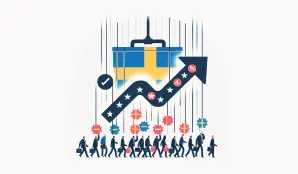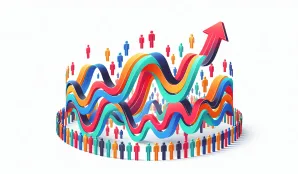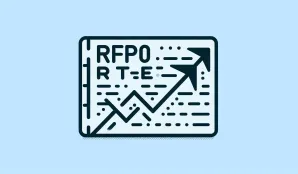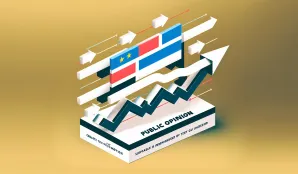Inflation
- Articles
- Inflation
Inflation Stabilized at 2.3%: What Does It Mean for Swedish Households?
The latest inflation report from SCB shows that inflation according to the CPIF (Consumer Price Index with fixed interest) remains at 2.3% for May 2025. This marks the third consecutive month where inflation has stabilized at this level. At the same time, CPI inflation has dropped to 0.2%, which is a significant decrease from previous months.
Challenges and Possible Decisions for the Riksbank
With stable CPIF inflation and declining CPI inflation, the Riksbank faces the challenge of balancing economic growth with price stability. The repo rate currently stands at 2.25%, and there is speculation that the Riksbank may consider lowering the rate further to stimulate the economy, especially given the low CPI inflation.
Economic Forecasts and Interest Rates
Economists predict that we may see a reduction in the repo rate within the coming months if inflationary pressure continues to decrease. This could lead to lower borrowing costs for both mortgages and personal loans, potentially providing households with more disposable income.
Mortgage Calculation: How Are Borrowers Affected?
To illustrate how a potential rate cut could affect mortgages, we can look at a few examples:
- A mortgage of 1 million kronor with an interest rate of 3.25% (repo rate + 1%) would cost approximately 2,708 kronor per month in interest costs.
- A mortgage of 3 million kronor with the same interest rate would cost approximately 8,125 kronor per month.
- A mortgage of 5 million kronor would cost approximately 13,542 kronor per month.
If the Riksbank lowers the repo rate by 0.25 percentage points, this could imply a corresponding reduction in interest costs for borrowers.
Personal Loans and Household Finances
For personal loans, which often have higher interest rates than mortgages, a decrease in the repo rate could also mean lower monthly costs. This can give households more room in their budget for other expenses.
Food Prices, Fuel Prices, and Energy Prices
The low CPI inflation may indicate that the prices of goods and services, including food and energy, are not rising as quickly as before. This could be good news for consumers, especially those with limited incomes. However, fuel prices, which are often influenced by global factors, may continue to fluctuate regardless of domestic inflation.
Summary
The stable CPIF inflation and the declining CPI inflation give the Riksbank room to consider interest rate cuts to support the economy. For Swedish households, this could mean lower borrowing costs and potentially more money available for other expenses. How the Riksbank acts in the coming months will be crucial for the economic development in Sweden.
Sweden's national debt
-

Opinion Landscape: Novus February 2026 – Social Democrats Still Largest
Thu, 19 Feb 2026 - 01:35 -

Policy rate remains at 1.75% – Riksbank signals stability
Thu, 29 Jan 2026 - 14:02











